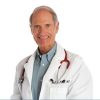
Link Between Diet and Cancer
Cancer is a preventable disease, and since one-third of cancers are diet related, change your diet and you drastically decrease your chances of getting cancer. Each year the United States spends billions of dollars on cancer research, and our country excels in the treatment of cancer. We have some of the best cancer specialists and cancer treatment centers in the world, which look at the link between diet and cancer (See Dietary Changes to Lower Cancer Risk).
The Harvard Report on Cancer Prevention lists the relative risk factors as the following:
| CANCER RISK FACTORS | PERCENT OF CANCER DEATHS |
|---|---|
| Smoking | 30 |
| Diet (animal food-based) | 30 |
| Lack of exercise | 5 |
| Carcinogens in the workplace | 5 |
| Family history of cancer | 5 |
Yet, the United States is pitifully inadequate when it comes to cancer prevention. After battling and surviving colon cancer, my main concern was how to keep from getting cancer again. As part of my treatment program, I consulted top cancer specialists and visited one of the top cancer centers in the world. When asked what I could do nutritionally to lower my chances of having, shall we say, a “return visit,” the oncologist glibly said, “Don’t eat too many hamburgers.” Such was the extent of nutritional counseling for cancer prevention. That’s when I realized that a cancer survivor is more motivated than even the top cancer specialists to do his homework on preventive medicine.
Check out our Health Coaching Programs for Disease Prevention
After all, cancer centers and cancer specialists make their living on treatment, not prevention. While there is no lack of money for cancer research in America, research money is targeted primarily at developing new understandings and treatment of cancer with a pitifully small proportion of government research funds directed toward prevention. Cancer research is a glaring example of funding the wrong end – too much money spent on treatment, too little spent on prevention.
No one in the world is more motivated to seek out an anti-cancer regimen than a cancer survivor who wants to be sure he remains a survivor. I was also motivated by concern for my children. There is a strong hereditary tendency within our family for cancer. Both Martha’s mother and my father died of colon cancer. Some people have genes that give cells an increased chance of mutating, meaning becoming malignant. These are called oncogenes, meaning cancer risk genes. The influence of these genes does not become apparent unless they’re activated by certain carcinogens. If you inherit oncogenes for a particular cancer, there are three ways to lower your risk of getting that cancer:
- Decrease your exposure to carcinogens – cancer-causing irritants, pollutants, or substances in your diet.
- Boost your immune system so it can fight against and eliminate cells that have become precancerous by mutation.
- Consume a diet that decreases the formation, or growth, of potentially malignant cells.
While there is ongoing debate in many fields of preventive medicine, the link between diet and cancer is no longer controversial, thanks to a monumental six-year study called the “China Project,” conducted by universities in America, China, and Great Britain. This study concluded that the standard American diet contributes greatly to the high incidence of cancer and cardiovascular disease. The most influential studies regarding the link between diet and cancer showed the following significant correlations:
- A plant-based diet instead of an animal-based diet lowers the rate of breast, prostate, and colon cancers.
- Lung, breast, prostate, and colon cancers (the “Big Bad Four”) account for more than half of all cancer deaths. The good news is these are also the cancers for which dietary changes can lower the risk.
- Diet can be implicated in at least one-third of all cancers.
- Increasing your daily consumption of fruits and vegetables can greatly lower your cancer risk.
- Diet probably plays more of a role in cancer development than genes. It is well known that the incidence of most cancers are less in Asian cultures. The evidence for the link between diet and cancer in studies have shown that when Asians moved to the United States and switched from a primarily plant-based diet to an animal-based diet, the cancer rates in these immigrants increased to approach those of Americans.
During my recovery from surgery, chemotherapy, and radiation therapy for colon cancer, I thoroughly researched many claims about diet and lifestyle in relation to cancer risk. The anti-cancer regimen on this site is based on solid scientific information.
You don’t all of a sudden “get cancer.” Chances are great that you, and even your children, have a few cancer cells lurking in your body. This is why we emphasize beginning the anti-cancer regimen, especially the anti-cancer diet, in early childhood, since cancer cells develop very slowly over decades and may not be detected until decades later (See Anti-Cancer Program). Please note both the LEAN Start for Families and Prime Time Health Coaching protocols offered by FriscoFIT City and Health Coach Gerryl Krilic follow Dr. Sears Wellness Institute disease prevention protocols and are of themselves anti-cancer programs.

Dr. Sears, or Dr. Bill as his “little patients” call him, has been advising busy parents on how to raise healthier families for over 40 years. He received his medical training at Harvard Medical School’s Children’s Hospital in Boston and The Hospital for Sick Children in Toronto, the world’s largest children’s hospital, where he was associate ward chief of the newborn intensive care unit before serving as the chief of pediatrics at Toronto Western Hospital, a teaching hospital of the University of Toronto. He has served as a professor of pediatrics at the University of Toronto, University of South Carolina, University of Southern California School of Medicine, and University of California: Irvine. As a father of 8 children, he coached Little League sports for 20 years, and together with his wife Martha has written more than 40 best-selling books and countless articles on nutrition, parenting, and healthy aging. He serves as a health consultant for magazines, TV, radio and other media, and his AskDrSears.com website is one of the most popular health and parenting sites. Dr. Sears has appeared on over 100 television programs, including 20/20, Good Morning America, Oprah, Today, The View, and Dr. Phil, and was featured on the cover of TIME Magazine in May 2012. He is noted for his science-made-simple-and-fun approach to family health.July 26, 2013 October 18, 2017 Dr. Bill Sears